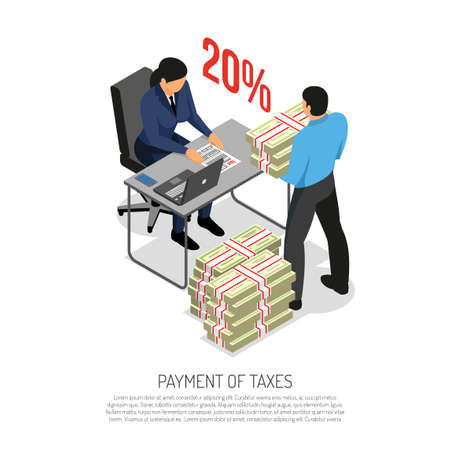Understanding Sole Trader Status
Before embarking on your freelance journey in the UK, it’s essential to grasp what it means to operate as a sole trader. In simple terms, a sole trader is an individual who runs their own business as a self-employed person, without forming a separate legal entity such as a limited company. This is one of the most popular ways for freelancers to get started, especially when you’re working alone or just testing the waters.
What Is a Sole Trader?
As a sole trader, you and your business are legally one and the same. You have full control over your operations and retain all profits after tax. However, this also means that you are personally responsible for any debts or liabilities incurred by your business. There’s minimal paperwork required to start, making it an attractive option for many freelancers and small business owners across the UK.
Pros of Being a Sole Trader
- Simplicity: Setting up as a sole trader is straightforward with fewer administrative burdens and no need to register with Companies House.
- Control: You make all decisions and keep all post-tax profits.
- Privacy: Your business details remain private, unlike limited companies which must publish certain information publicly.
Cons of Being a Sole Trader
- Unlimited Liability: You are personally liable for all business debts, which can put your personal assets at risk.
- Tax Efficiency: As profits grow, you may pay more tax compared to operating through a limited company, which can offer more flexible ways to manage income.
- Credibility: Some clients or agencies may prefer dealing with limited companies for perceived professionalism or security.
Sole Trader vs Limited Company: Which Is Right for You?
The choice between setting up as a sole trader or a limited company depends on your individual circumstances. For many starting out in freelance work, becoming a sole trader provides an easy route with less red tape. However, if you anticipate significant growth or want to limit personal financial risk, exploring the limited company route might be worthwhile down the line. Understanding these basics sets the foundation for your next steps as you move forward with your freelance career in the UK.
Registering as a Sole Trader
Setting up as a sole trader in the UK is straightforward, but it’s crucial to get the registration process right from the outset. Here’s a step-by-step guide to ensure you register correctly with HMRC and meet all necessary deadlines.
Step 1: Gather Your Essential Information
Before registering, you’ll need to have some key details at hand:
| Required Information | Description |
|---|---|
| National Insurance Number | This uniquely identifies you for tax and benefits purposes. |
| Personal Details | Your full legal name, date of birth, and home address. |
| Business Details | The name of your business (if different from your own), business address, and the nature of your freelance work. |
| Email & Telephone Number | For correspondence from HMRC. |
Step 2: Register Online with HMRC
You must inform HMRC that you’re self-employed by registering as a sole trader. The most common way is online via the government’s official website. Simply go to the GOV.UK set up as a sole trader page and follow the instructions. If you prefer, you can also register by phone or post, but online is usually quicker and easier.
Step 3: Understand the Deadlines
| Deadline Type | Date/Timeframe | Details |
|---|---|---|
| Register as Self-Employed | By 5th October in your business’s second tax year | If you started trading during this tax year (6 April – 5 April), register by 5th October following the end of that tax year. |
| Submit Self Assessment Tax Return | By 31st January (following end of tax year) | This is when you report your income and pay any tax owed. |
Troubleshooting Common Issues During Registration
- If you don’t receive your Unique Taxpayer Reference (UTR) within 10 days, contact HMRC for assistance.
- If unsure about your start date, use the date you first received payment or incurred business expenses.
- If you make a mistake in your application, you can update details through your HMRC online account after registration.
A Quick Recap for UK Freelancers:
- You must register as a sole trader if earning more than £1,000 from self-employment in a tax year.
- Keep all records from day one – invoices, receipts, contracts – for accurate tax reporting later on.
- Don’t leave registration until the last minute; missing deadlines can lead to penalties from HMRC.

3. Essential Legal and Financial Duties
Setting yourself up as a sole trader in the UK means taking on several important legal and financial responsibilities. Its not just about doing the work—you’ll also need to ensure you’re compliant with HMRC regulations, pay your taxes correctly, and keep thorough records. This might sound daunting at first, but breaking it down step-by-step helps make things manageable.
Your Tax Responsibilities
As a sole trader, you are personally responsible for declaring your income and paying the correct amount of tax each year. You must register for Self Assessment with HMRC as soon as you start trading, and then file a tax return annually. This process calculates how much Income Tax and National Insurance you owe based on your profits. Remember, tax isn’t deducted automatically from your freelance income—its down to you to set aside enough money throughout the year.
National Insurance Contributions (NICs)
Paying National Insurance is another key duty. Most sole traders will need to pay Class 2 NICs if your profits are above a certain threshold, and Class 4 NICs if your earnings are higher still. These contributions go towards your entitlement to benefits like the State Pension. HMRC’s website provides updated thresholds and rates each year, so check these regularly to stay on top of changes.
Keeping Proper Records
Good record-keeping is essential for any freelancer operating as a sole trader. You’ll need to track all your business income and allowable expenses to accurately complete your tax return. This includes keeping receipts, invoices, bank statements, and any correspondence related to your business finances. Many people find it useful to set up a separate business bank account—even though its not required by law—to keep things organised.
Staying Organised: Practical Tips
- Keep digital or paper copies of all receipts and invoices.
- Regularly update a simple spreadsheet or use accounting software tailored for sole traders.
- Set calendar reminders for important deadlines such as submitting your tax return and paying any owed amounts.
Final Thoughts
While handling legal and financial duties can seem overwhelming at first, getting into good habits early on makes the process much smoother. Take the time to understand your responsibilities, keep clear records from day one, and don’t be afraid to seek advice from professionals if needed—this is all part of building a sustainable freelance business in the UK.
4. Setting Up Your Finances
Getting your finances in order is crucial when starting as a sole trader in the UK. Managing money efficiently not only keeps you compliant with HMRC but also makes day-to-day operations smoother. Here are some practical tips to help you set up your financial systems correctly from the outset.
Opening a Dedicated Business Bank Account
While it’s not legally required for sole traders in the UK to have a separate business bank account, it’s highly recommended. Keeping your business and personal finances apart helps you track income and expenses accurately, simplifies bookkeeping, and makes tax returns less of a headache.
Key Points for Choosing a Bank Account
| Feature | Why It Matters |
|---|---|
| No monthly fee (if possible) | Keeps overheads down, especially when starting out |
| Easy online banking | Saves time managing transactions on the go |
| Integration with accounting software | Makes bookkeeping and tax filing much easier |
| Good customer support | Useful if issues arise or you need advice on business banking matters |
Most high street banks (like Barclays, Lloyds, HSBC, and NatWest) offer business accounts tailored for sole traders. Many challenger banks (like Monzo or Starling) also provide flexible options with user-friendly mobile apps.
Invoicing Clients Professionally
A clear invoicing system ensures you get paid promptly and keeps records tidy for both you and your clients. Your invoice should always include:
- Your name/trading name and address
- The client’s name and address
- A unique invoice number
- The date of issue and payment due date (standard terms are 30 days in the UK)
- A description of goods/services provided
- The amount charged and applicable VAT if registered
- Your bank details for payment
Many freelancers use digital tools like FreeAgent, QuickBooks, or even simple Excel templates to generate invoices quickly and keep track of what’s outstanding.
Managing Expenses Effectively
Tracking business expenses is essential for accurate profit calculations and maximising allowable deductions at tax time. Typical allowable expenses for UK sole traders include:
| Expense Type | Description/Examples |
|---|---|
| Office supplies & equipment | Laptops, stationery, printer ink, etc. |
| Travel costs | Train tickets, mileage allowance (45p per mile for first 10,000 miles), parking fees |
| Professional fees & subscriptions | Accountant fees, trade body memberships |
| Marketing & advertising | Website hosting, social media ads, flyers |
| Utilities & phone bills (proportion used for work) | If working from home, claim a reasonable portion based on usage |
Tops Tips for Expense Management:
- Keep receipts for all business purchases – digital scans are acceptable by HMRC.
- Categorise your expenses as you go to avoid end-of-year confusion.
- Consider using expense tracking apps linked to your bank account for real-time monitoring.
By setting up good financial habits early—separating accounts, invoicing clearly, and recording expenses—you’ll make life much easier come Self Assessment season and ensure your freelance operation stays on solid ground.
5. Getting Insured and Staying Compliant
As a sole trader in the UK, protecting yourself with the right insurance is just as important as getting your financials in order. Freelancers face unique risks, so it’s wise to look into cover that matches your work. The two most common types are public liability insurance and professional indemnity insurance. Public liability insurance is essential if you meet clients in person or work on-site, as it covers you for injury or damage claims made by third parties. Professional indemnity insurance, on the other hand, is crucial if you provide advice or services—such as design, consultancy, or IT support—as it protects you if a client alleges that your work has caused them a loss.
While these insurances aren’t legally required for all freelancers, certain clients may insist on proof of cover before awarding contracts. In some sectors—like health and social care—having specific insurance is compulsory. It’s also worth considering other policies such as contents insurance for your equipment or income protection in case you fall ill and can’t work.
Compliance goes beyond insurance. As a sole trader, you must keep accurate records of all your business income and expenses for at least five years after the 31 January submission deadline of the relevant tax year. You’re responsible for submitting an annual Self Assessment tax return to HMRC and paying any Income Tax and National Insurance owed. If you handle client data, make sure you understand your obligations under UK GDPR regulations—registering with the Information Commissioner’s Office (ICO) might be necessary depending on the type of data you process.
Staying compliant is an ongoing process rather than a one-off task. Schedule regular check-ins—perhaps quarterly—to review your insurance cover, update your record-keeping, and ensure you’re up-to-date with any legal changes affecting sole traders in the UK. This diligence not only keeps you on the right side of the law but also builds trust with clients who value professionalism and reliability.
6. Growing Your Freelance Business
Once you’ve set up as a sole trader and are confident with your admin, it’s time to focus on growing your freelance business. Success in freelancing often depends on how effectively you promote your services, find new clients, and tap into available resources.
Promoting Your Services
Start by building a professional online presence. Create a website or portfolio showcasing your skills, experience, and testimonials from satisfied clients. Make use of social media platforms like LinkedIn, Twitter, and Instagram (if relevant to your sector) to share updates, connect with potential clients, and demonstrate your expertise. Don’t underestimate the power of word-of-mouth—let friends, family, and previous colleagues know about your freelance offering. Consider printing business cards for local networking events or joining co-working spaces where you can meet other professionals.
Finding Clients
Securing a steady stream of work is essential. Register with UK-based freelance job boards such as PeoplePerHour or YunoJuno, and keep an eye on listings at sites like Indeed or Reed for project-based roles. Reach out directly to businesses you’d like to work with; a well-crafted email introducing yourself and your services can go a long way. Networking is key—attend industry events, workshops, and talks to make connections that could lead to future work. Remember, persistence pays off: don’t be discouraged by slow periods, as building a client base takes time.
Accessing Support and Resources
The UK has a range of support networks for freelancers. Join professional bodies or unions relevant to your field (like IPSE or the NUJ), which often offer legal advice, contract templates, and community forums. Local enterprise hubs or Chambers of Commerce can be invaluable for advice and training opportunities. For ongoing learning, check out free resources from GOV.UK, HMRC webinars on self-employment tax matters, or online courses focused on skills development. Connecting with other freelancers—whether through online forums or local meet-ups—can help you stay motivated and share practical tips.
Final Thoughts
Growing as a UK freelancer is about more than just doing great work—it’s also about building relationships, staying visible in your market, and never stopping learning. By taking advantage of the many resources available and actively promoting yourself, you’ll put your business in the best position to thrive.

